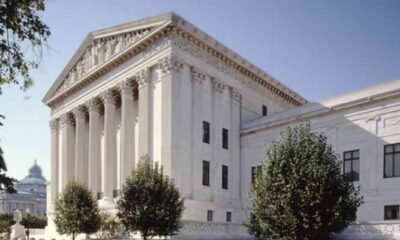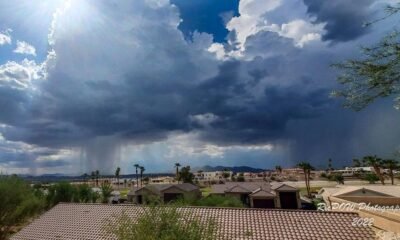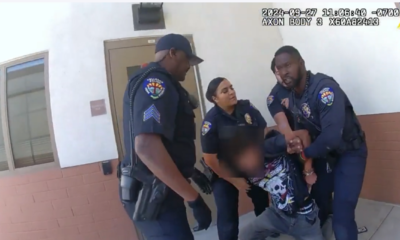arizona
Supreme Court Ruling Could See Police Crack Down on Arizona’s Homeless

WASHINGTON – Arizona advocates for the homeless have expressed alarm following a recent Supreme Court decision that potentially escalates risks of police violence against those sleeping in public spaces.
Phoenix gained national attention last year after a Maricopa County judge ordered the clearance of “The Zone,” the city’s largest homeless encampment. Downtown businesses had raised concerns about safety hazards.
Advocacy groups denounced the removal, which displaced hundreds of residents by November.
June saw a critical report from the U.S. Department of Justice, revealing that Phoenix police unlawfully detained, cited, and arrested homeless individuals while improperly handling their personal belongings.
The Supreme Court’s 6-3 decision upheld an Oregon law, thereby affirming similar bans in cities like Phoenix, which criminalize sleeping outdoors or in encampments.
Arizona advocates fear significant negative impacts due to this ruling.
“Homelessness is complex. Its causes are many. So may be the public policy responses required to address it,” stated Justice Neil Gorsuch.
Jared Keenan, from the American Civil Liberties Union of Arizona, emphasized the harsh reality of fining, arresting, and jailing individuals for outdoor sleeping when no other options exist. Keenan remarked, “The Supreme Court has given the green light to cities to criminalize existence when you’re unhoused.”
Arizona has long been criticized for its treatment of homeless populations. In November 2022, the ACLU of Arizona filed a lawsuit against Phoenix for penalizing homeless individuals and destroying their property without notice.
“Officials are using criminalization as a primary tool, not just one in a broader strategy,” Keenan added, highlighting the counterproductive nature of such measures compared to expanding affordable housing and social services.
Ann Oliva, CEO of the National Alliance to End Homelessness, stated, “Criminalization doesn’t end anybody’s homelessness. The solution lies in providing housing and supportive services.” Oliva called for federal investments to address the housing crisis, affecting communities nationwide, not just Arizona.
According to the Arizona Department of Economic Security, unsheltered homelessness in the state spiked 29% from 2020 to 2023, with a near 73% increase over five years.
The DOJ report highlighted that over a third of Phoenix arrests between 2016 to 2022 involved homeless individuals, with many stops and arrests deemed unconstitutional.
In response to the Supreme Court ruling, Phoenix asserted through a statement it aims to address encampments “in a dignified and compassionate manner” while striving to end homelessness and maintain neighborhood quality of life.
In December 2022, a federal judge ordered Phoenix to halt enforcing camping bans and property seizures without notice. The order was modified in October 2023 to align with a ruling from the 9th Circuit U.S. Court of Appeals, which also governs Arizona.
The 9th Circuit had declared it unconstitutional to target homeless individuals using basic sleeping materials. This ruling was overturned by the Supreme Court in June, in City of Grants Pass v. Johnson.
The DOJ documented police violations of court orders, including failing to properly train officers. Despite some improvement in high-visibility areas, many sweeps still did not meet constitutional standards.
Cases included the illegal arrest of individuals for trespassing while sleeping on public sidewalks, and police discarding essential personal belongings, including an urn with a relative’s ashes and necessary identification documents.
Arizona’s rapid population growth exacerbates the homeless crisis. Despite Phoenix investing $140 million in shelters and services, affordable housing shortages overwhelm capacity.
“The city tends to see unhoused communities as a problem rather than humans,” said Ben Laughlin from Poder in Action. “It’s easier to disappear people through incarceration than address the homelessness crisis.”
Although the Supreme Court has validated encampment bans, advocates push for long-term policy solutions over policing.
Keenan cautioned, “We fear the city might double down on criminalizing those who are unhoused.”
















